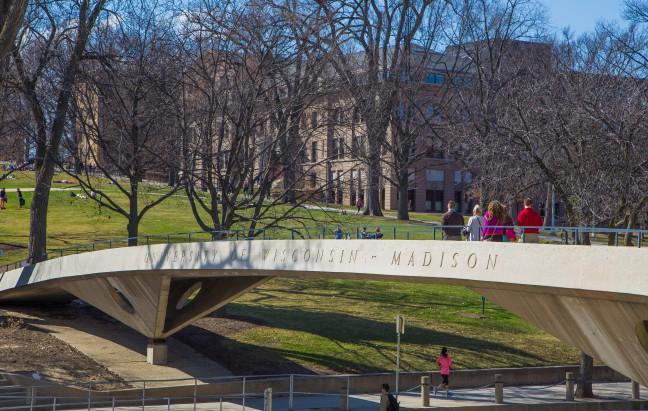In light of the U.S. Department of Education’s decision to rescind several Title IX federal guidelines on investigating and prosecuting sexual assault, the University of Wisconsin reaffirmed its commitment to its current policies regarding sexual assault.
Two key documents rescinded under the DoE’s decision include the 2011 “Dear Colleague” letter and the 2014 “Questions and Answers on Title IX and Sexual Violence” document, both of which provide federally mandated “preponderance of evidence” guidelines for investigating sexual assault on college campuses.
Samantha Johnson, the violence protection manager at University Health Services, said the guidelines included in these documents are intended to make the process of sexual assault investigation easier for everyone involved, but the retractions by the DoE have made that process more complicated.
“It’s a little more complicated for everyone involved, but particularly it’s a shift away from a survivor-centered process,” Johnson said.
The retraction of the 2014 “Questions and Answers on Title IX and Sexual Violence” document makes unclear the distinctions between what are acceptable practices in a disciplinary case such as sexual assault, Johnson said.
Without this document, Johnson said universities are left with no guidance as to how to proceed in disciplinary cases involving sexual assault.
“This was a really long document that provided specific answers to specific questions of how to proceed in a disciplinary case,” Johnson said. “All of the things that were in there, we don’t have guidance on anymore.”
According to the announcement released by the DoE, changes to Title IX include revoking the 60 day timeline that universities are given to mediate the situation and abolishing the minimum preponderance of evidence standard, which outlines evidence necessary for a conviction in a sexual assault case.
Other changes outlined in the announcement include different mediation options for students found guilty of sexual assault, and the removal of the equitable right to appeal, which means both parties are now no longer allowed the same amount of appeals.
“Before they had the same number of opportunities, but now the Department of Education is saying the respondent —the accused — can have an unlimited number of opportunities to appeal the decision,” Johnson said. “This turns into a cycle of going to different people to see if there’s a different answer to the same evidence, so that’s pretty concerning.”
In response to the DoE’s Title IX revocations, Chancellor Rebecca M. Blank released a statement reaffirming the university’s commitment to making the campus a safe place.
“No student on our campus should have to deal with sexual assault,” Blank said. “We have worked hard to develop a set of policies and practices that serve our students well and we do not plan to change them.”
The university’s policies are determined by the UW system, Blank’s statement said, and their practices are not likely to change.
Student organizations specializing in sexual assault on campus supported Blank’s statement.
Promoting Awareness, Victim Empowerment Chair Janie Felton said the organization supports the university in their commitment to the Title IX procedures. PAVE is a student organization which works to prevent sexual violence and build a healthy campus community.
“PAVE believes that rescinding the federal guidance on Title IX will negatively impact student survivors across the nation,” Felton said. “We commend UW for choosing not to sink to minimum guidance at this time, and urge them to continue using the preponderance of the evidence standard in the future.”
At the national level, universities and colleges are now free to lower their standards of evidence when investigating instances of sexual assault cases.
In the statement, Blank said UW recognizes previous preponderance of evidence standards by Title IX only required the minimum, however, the university will continue to make additional resources available to students who are victims of sexual assault.
“I am really thrilled with UW’s response that, in spite of new guidance, we recognize that these policies are a floor not a ceiling,” Johnson said. “We’re always here to serve survivors. UHS has an entire unit called the survivor services unit and their whole job is to support students emotionally who have experienced sexual assault, dating violence, sexual harassment — and those services aren’t going away.”


